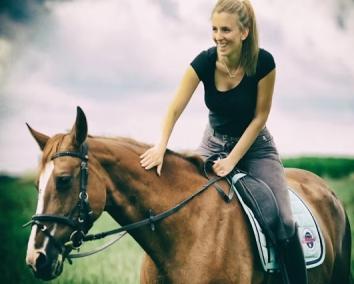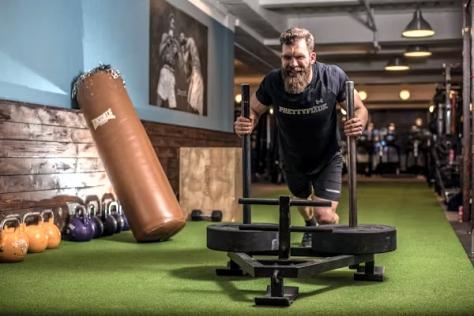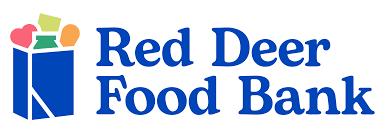






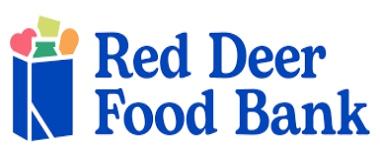

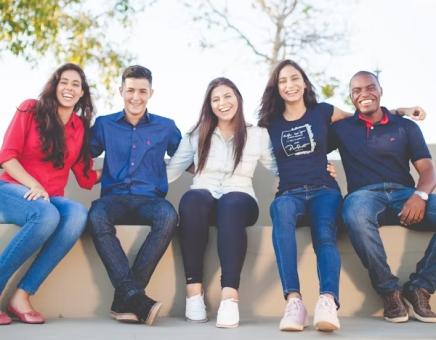
Volunteering with Big Brothers Big Sisters (BBBS) has truly changed John’s life. At 45, this IT consultant never imagined howdeepanimpacthecouldhave—evenwhile helpingsomeoneelse.
Three years ago, he was paired with Alex, a shy 12-year-old who faced a lot of challenges, both in school and with his self-esteem. At first, their �me together was filled with simple joys: shoo�ng hoops at the park and exploring the local library. But those casual ou�ngs became the founda�on for a strong bond built on trust.As �me went by, John found himself stepping into a role he didn’t expect: a mentor and a steady presence in Alex’s life. They started se�ng goals together, like improving Alex’s grades and diving into his newfound love for so�ware. Thanks to John’s background with computers, he was able to spark Alex’s crea�vity, and they embarked on fun projects thatfueledAlex'spassion.
John’s pa�ent guidance played a crucial role as Alex navigated the pressures of school and personal challenges. Celebra�ng those li�le victories—like an improved report card or a successful art compe��on—only brought them closer together. For John, the experience of mentoring Alex has not just been about giving; he o�en reflects on how this journey has made him more empathe�c and aware of his impact on others.Looking ahead,Johnis excited aboutAlex’s future. He hopes to see him shine in high school and beyond, commi�ed to suppor�ng him every stepoftheway.
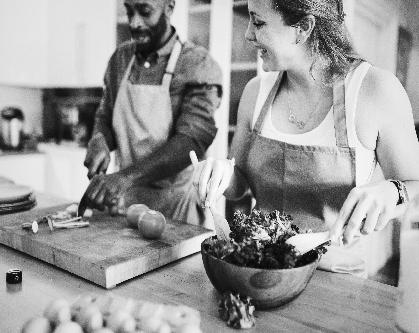
Their journey illustrates just how powerful mentorship can be, showcasing what BBBS does in crea�ng transforma�ve rela�onships that change lives. John’s story serves as a reminder to others about the importance of community involvement. He o�en encourages his friends and colleagues to get involved, par�cipateinBBBSevents,andsupportthemissionoftheorganiza�on.A�erall,hebelieves thatcommunityengagementisessen�alforbuildingabrighterfutureforeveryone.





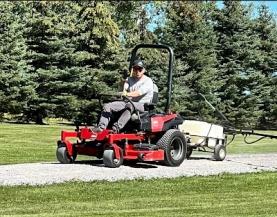


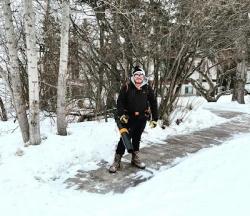



Healing Through Horses Equine
therapy, or horse-assisted therapy, is an effec�ve mental health treatment that involves interac�ng with horses to address emo�onal and psychologicalchallenges.
Horses are highly intui�ve, responding to human emo�ons and non-verbal cues, making them ideal therapeu�c partners. In equine-assisted psychotherapy (EAP), individuals engage in ac�vi�es such as grooming or leading horses under the
guidance of a licensed therapist. The horse's reac�ons help clients gain insights into their emo�ons, promo�ng s e l f- awa re n e s s a n d e m o � o n a l regula�on.
Equine-assisted learning (EAL) focuses onbuildingskillslikecommunica�onand problem-solving, o�en used for social anxiety or low self-esteem. Therapeu�c riding can enhance both physical coordina�onandmentalwell-being.
The benefits of equine therapy are wideranging: it reduces stress, improves emo�onal control, builds trust, and boosts self-confidence. It’s par�cularly effec�ve for those suffering from anxiety, depression, PTSD, and trauma, providing a calming, non-judgmental environment for personal growth. Equine therapy is suitable for individuals ofallagesandbackgrounds.
By forming a trus�ng bond with a horse, people can experience emo�onal healing and gain valuable life skills, making it a powerful tool for mental healthrecovery.
